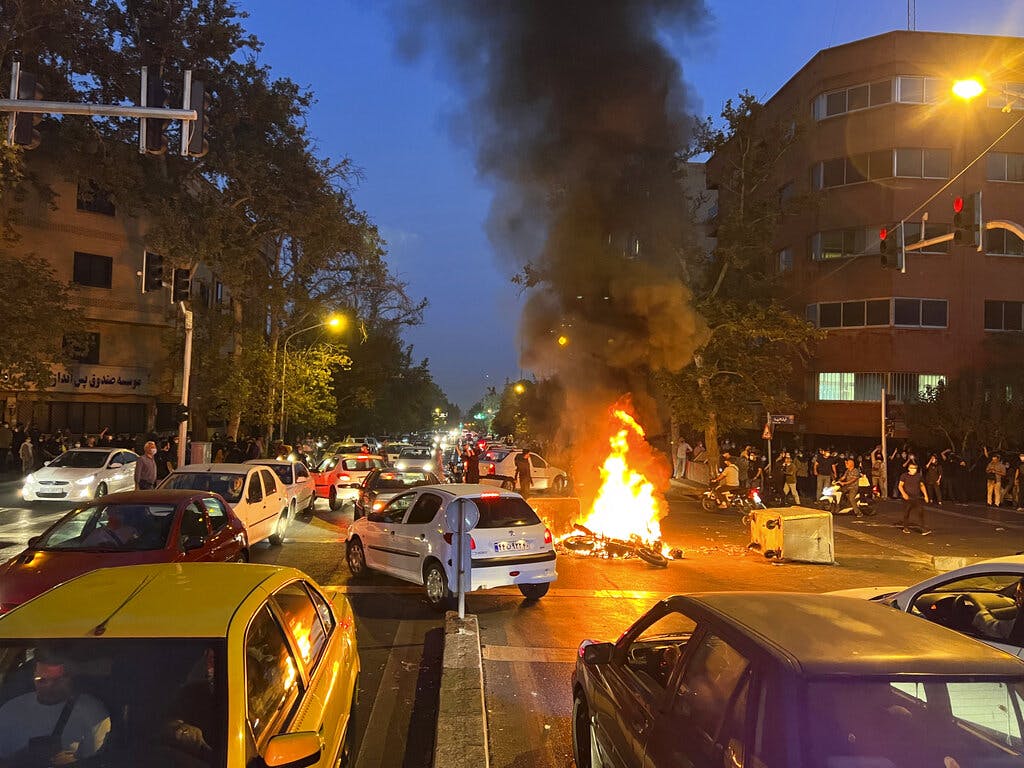A Second Chance in Iran
Today’s White House foot-dragging risks repeating one of the errors of the Obama-Biden years, when, in 2009, President Obama, disdaining any idea of ‘meddling,’ failed to pipe up in favor of the democracy protesters at Tehran.

Is President Biden prepared to send envoys to make contact with protesters for freedom in Iran? That’s the question presented by growing awareness that the protests gripping Iran, now in their 10th day, are, as our Eli Lake reports, “about ending, not reforming, the Islamic Republic.” Mr. Biden, he writes, appears to be lagging behind the news, “still waiting and watching to gauge the seriousness of the unrest.”
This foot-dragging risks repeating one of the errors of the Obama-Biden years, when, in 2009, Mr. Obama, disdaining any idea of “meddling,” failed to pipe up in favor of the democracy protesters who sought to prevent the regime from stealing that year’s presidential election. Amid the largest protests seen in Iran since 1979, Mr. Obama said, “we respect Iranian sovereignty.” He hoped “to avoid the United States being the issue inside of Iran.”
Already, Mr. Biden missed an opportunity to bolster the protesters’ cause when he failed to endorse from the podium of the UN General Assembly Elon Musk’s offer to deploy his Starlink satellite internet access system to aid Iranians marching in the streets. Though the Treasury Department did allow the project to proceed, it was a lost chance for Mr. Biden to proclaim on the global stage America’s commitment to freedom.
More’s the pity, because time is of the essence when repressive regimes are challenged by protest. Governments and empires have fallen in those moments when it becomes clear that popular resistance has crossed over into full-scale revolt. The Iranians, Mr. Lake says, are “demanding to take their country back.” All the more reason for Mr. Biden, and Congress, to be prepared to welcome a provisional government at Tehran.
After all, the protests happening now in Iran are on a broader scale than what was seen in 2009, as Mr. Lake observes. “The uprising in Iran today is not limited to the major cities or led primarily by the professional class,” our columnist explains. Even though the unrest began with the “killing of a Kurdish woman” by the morality police, he writes, “all segments and ethnicities in Iran are participating in the uprising.”
The growing revolt, in Mr. Lake’s telling, “presents the free world, and particularly America, with a golden opportunity to center its policy around its real allies” — the protesters, along with the silent majority of Iranians weary of the Ayatollahs’ repression. The protests today, as in 2009, put the lie to Mr. Obama’s piffle in respect of conceding any “sovereignty” to the Islamic regime, which has never had the consent of the governed.
Rarely does one get a second chance, but America now has one in Iran. The democracy movement there does not have a single leader. But it does have the popular legitimacy necessary to topple a widely despised regime. The task now for America and her allies is to make contact with Iran’s next leaders and ask them what their movement needs to succeed. Anything less would be a betrayal not only of the Iranian people but of our national character.

